Serious games for research
Serious Games as a Research Tool Games as a Method Serious games can contribute to scientific research in many different ways and at many different stages. Think of collecting quantitative…
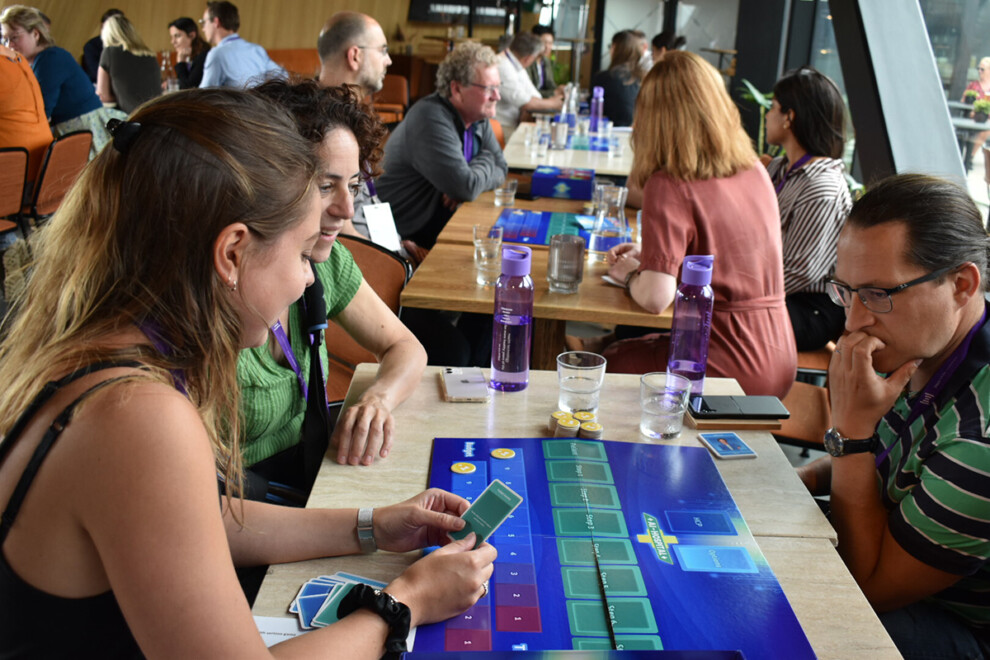
In 2022, UMCG’s Data Science Centre in Health (DASH), in collaboration with 8D Games, launched the serious game AI+Hospital, a board game that engages healthcare professionals in a conversation about the use of artificial intelligence (AI) in the hospital. Over the past year, more than 200 healthcare professionals from 20 countries have played the game – and its impact appears to extend far beyond the walls of the UMCG, which initially had the game printed in a small edition. Project leader Peter van Ooijen: ‘After every session, someone comes to us asking whether the game can also be made for their own department, or an invitation follows for yet another event.’
AI+Hospital was born from the ambition to embed data-driven work in the DNA of the UMCG. This starts with knowledge: what is artificial intelligence, what can you do with it and what are its consequences? Van Ooijen: ‘To support healthcare professionals in this, we developed a curriculum called AIProHealth, which covers not only the technical aspects but also the ethical, legal and social aspects of AI in healthcare. That course is available online via FutureLearn and is already well used: currently by some 2250 people worldwide. We were keen to add something extra to it – a physical component that helps people start actively using theoretical knowledge from the course and practising it together. The board game is a first outcome of this.’
‘When people think of serious games, they often immediately think of something digital, but our experience is that physical games in particular are very effective when the aim is to engage with each other,’ says Bas Altenburg, game designer at 8D Games. ‘AI+Hospital is basically a role-playing game. The players go through a fictional patient journey together and face a choice about the use of AI at each step. There is no definite ‘right’ or ‘wrong’ – the point is that players learn to make a balanced choice, taking into account the patient’s wishes, the various professionals and the ethical and legal aspects involved. This is a very instructive and constructive experience. In this case even more so because the textual content of the cards was very carefully compiled by the experts from the UMCG and the discussion links up with the themes from the curriculum.’
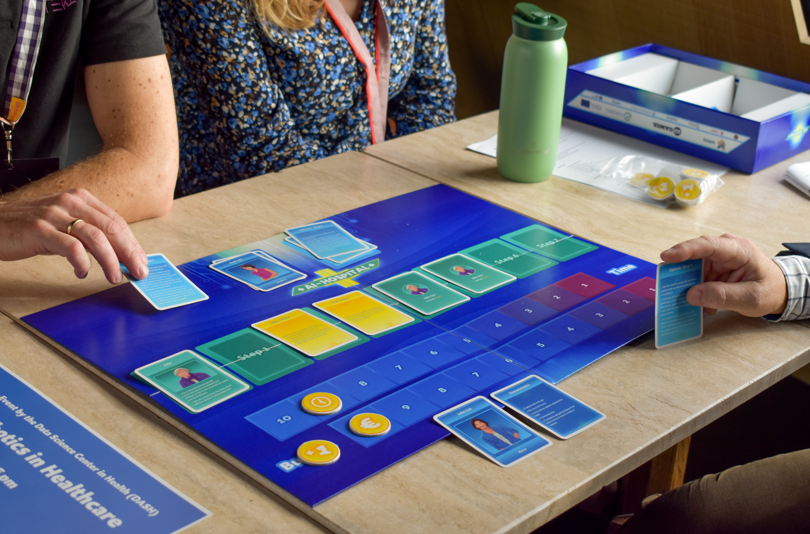
The game is currently being used at a variety of conferences and symposia. Van Ooijen: ‘It is most fun when there is a mix of people at the table, people with different professions and knowledge levels. That really livens up the discussion.’ Data scientist Eline Meijer regularly supervises the sessions and sees that people are surprised by the format: ‘It’s nice to see how people are a bit sceptical or uncertain at first, but go wild after the first round. It sometimes happens that they get into a discussion with the game leader because they think their choice should score more points, or that people want to continue after the game time has ended because they are too curious about how it ends with the fictitious patient. Then you know the goal has been achieved; AI in healthcare is on the map.’
The success of board game AI+Hospital sparks creativity and enthusiasm at DASH, but also raises all kinds of new questions about the sequel. Bart Scheerder, business developer at UMCG: ‘This game format – using a patient journey as the basis for a discussion about choices made during the process – can be translated to all kinds of other topics and specific patient journeys. But we, as a knowledge institute, are not interested in profit. However, it is up to us to take the generated knowledge and content further and thus continue to build communities around AI in healthcare. For example, we plan to provide a live variant at the HTRIC congress on 16 June: AI+Hospital XL, in which we will translate dilemmas from the game to the stage and thus be able to bring a larger audience into the discourse on AI in healthcare.’
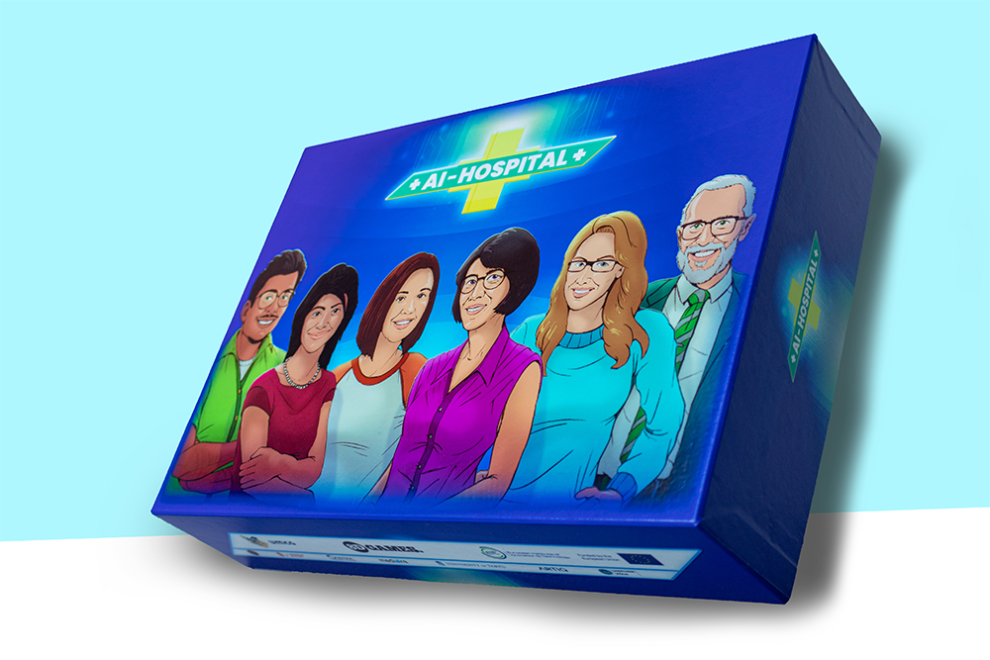
The in-depth curriculum that complements AI Hospital can be accessed through the knowledge platform FutureLearn. The course ‘How Artificial Intelligence Can Support Healthcare’ already has 2,315 participants who highly appreciate the course. Dive deep and learn everything about responsible use of AI in healthcare.

AIProHealth (Practical Artificial Intelligence for Healthcare Professionals) is a large international consortium funded by a grant from EIT Health, in which experts collaborate to develop an adaptable AI learning environment with various learning modules. As part of this initiative, a massive open online course (MOOC) and a Face2Face course with this serious game as a key component have already been developed. In the autumn of 2023, this will be expanded to include winter and summer courses in Tartu and Groningen.
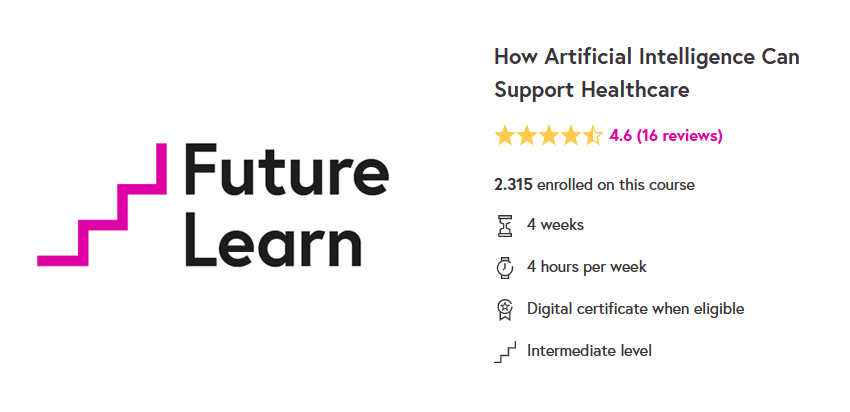
For more information on the curriculum, contact dash@umcg.nl.
For more information about game development and the possibilities of gaming in healthcare, contact info@8d-games.nl
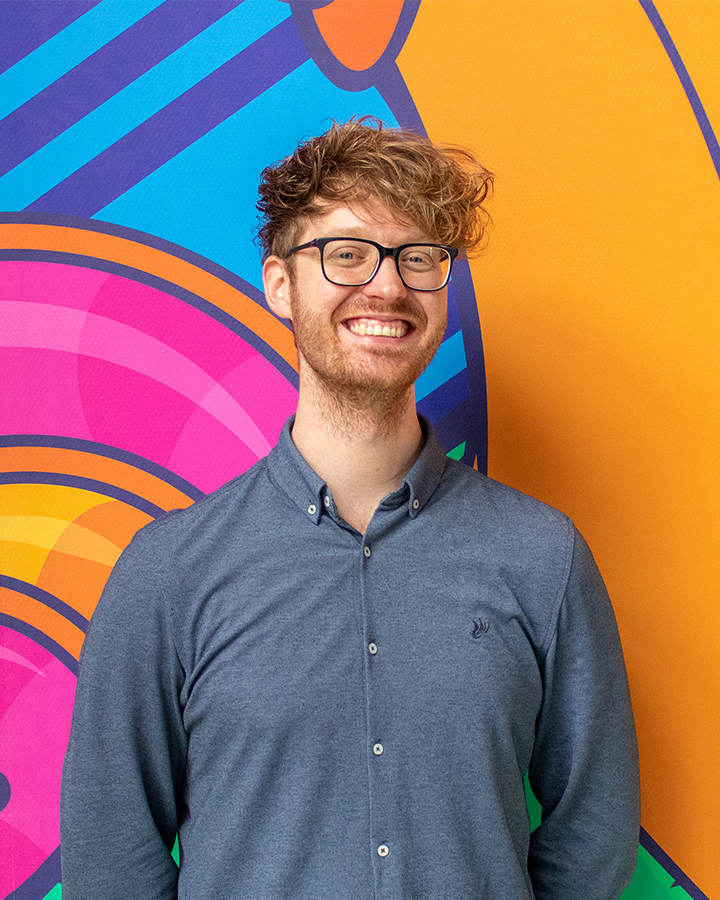
Get in touch with Johan